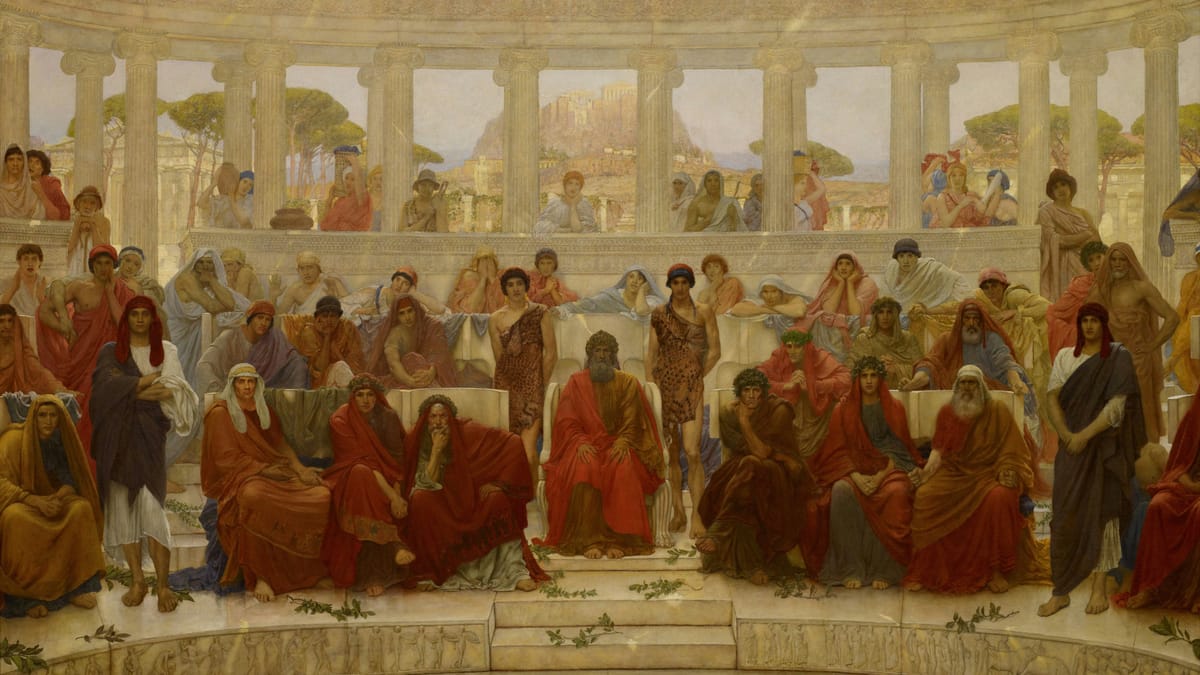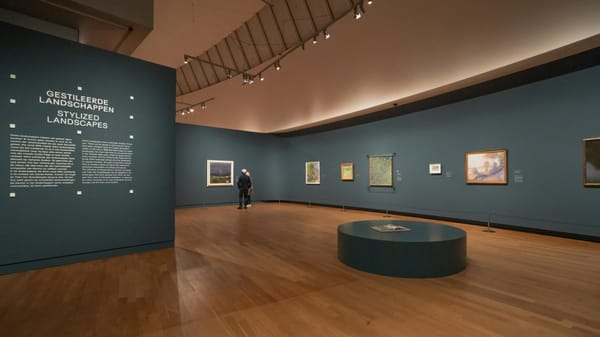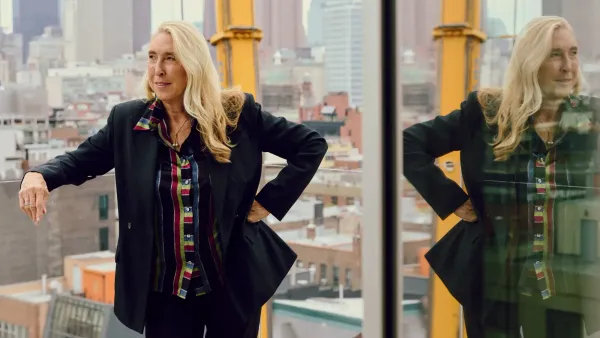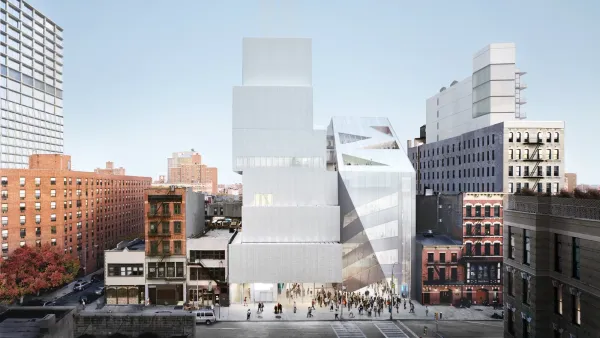Plato’s Academy: A Grove Where Thinking Became an Art
Walk into Plato’s olive grove in Athens, where dialogue shaped early higher learning—and discover how the Academy’s spirit still guides art and ideas today.

Let’s walk there together—past the traffic and the cafés, past the apartment blocks where laundry breathes in the wind—until Athens thins and the ground turns to dust and olive leaves. The city hum fades. In this quiet, a grove opens like a held breath. They once called it the Akademeia, after a half-legendary hero named Akademos. Here, in the mid-380s BCE, a man who had lost his teacher to a courtroom verdict sat down with friends and refused to let thinking die.
Plato did not build a university with bells and timetables. He planted a conversation. Under the silver of the trees, bodies moved, voices braided. There were no grades to chase, only questions: What is justice? What does beauty measure? Where does knowledge begin? The method was not a sermon but a game of honest provocation—question pressed into answer until both changed shape. You can hear it still in his dialogues, the way an idea is turned like a pot on a wheel, hands steady, clay warm.
The lineage feels improbably human when you picture them as people and not statues. Socrates, barefoot and stubborn, teaches Plato how to ask until certainty blushes. Plato passes the habit on to a brilliant Macedonian teenager named Aristotle. Years later, Aristotle will take those habits north to a royal pupil called Alexander, and the arc of Greek thought will stretch like a thrown spear—across coastlines, across languages, across the centuries. No single school owns that story, but this grove is where its pulse first found a rhythm.
Athens, of course, is a city that carries beauty and ruin in the same pocket. In 86 BCE, when Sulla’s army stormed the streets, axes bit into sacred trees and the Academy’s grounds suffered with the rest of the city. Yet teaching in Athens didn’t vanish; it changed rooms, changed hands, changed names. Long after, in 529 CE, an emperor in Constantinople ordered the Athenian philosophical school closed. And even that didn’t finish it. Ideas have a habit of traveling light. They crossed into Arabic through translators who loved argument as much as theology, then into Latin, into lecture halls, into the modern seminar where a question can still make a room sit up straighter.
The strange afterlife of the Academy is written in buildings and pictures. In the 1800s, a neoclassical palace rose in Athens with columns like disciplined breaths; the national Academy of Athens would later make it its home as a research institution. And somewhere far from Attica—in the Vatican of all places—Raphael painted a wide, generous plaza of minds, The School of Athens, and placed Plato and Aristotle at its heart. It is not the grove, but it remembers the light.
If you visit the archaeological park today, the trees are younger but the quiet is the same. A small digital museum stands there now, opened in our own century—an earnest little beacon that invites you to listen. On its screens, the old questions warm up again. Not to instruct you, exactly, but to keep you company. Because that is what the Academy was: not walls, but fellowship. A way of sitting with others and discovering that thinking is less a performance than a friendship with difficulty.
This is the part I love most: the Academy never depended on marble to exist. It cared for proportion and grace, yes, but only because those were the shapes of a healthy mind. When you feel a seminar come alive—when a studio critique stops being a defense and becomes a search; when a late-night argument with a friend turns tender because you both want the truth more than the victory—you are closer to this place than any tourist with a ticket stub.
So the story lands here, in our time. The grove was cut and replanted; the school was shuttered and reopened under other names; the city healed and faltered and healed again. But the practice endures: stand in the open air of honest speech, let a question unsettle you, and see what grows. Plato didn’t found a university in the medieval sense. He began a way of living with questions that still makes rooms brighter, strangers kinder, and difficult ideas possible to hold.
The grove never really closed. It just keeps moving—into libraries and studios, into lecture halls and kitchens and parks—wherever two or three agree to think together and to mean it.
© ART Walkway 2025. All Rights Reserved.





